Trey Azagthoth Explains How Morbid Angel Righted the Wrongs of the Recent Past
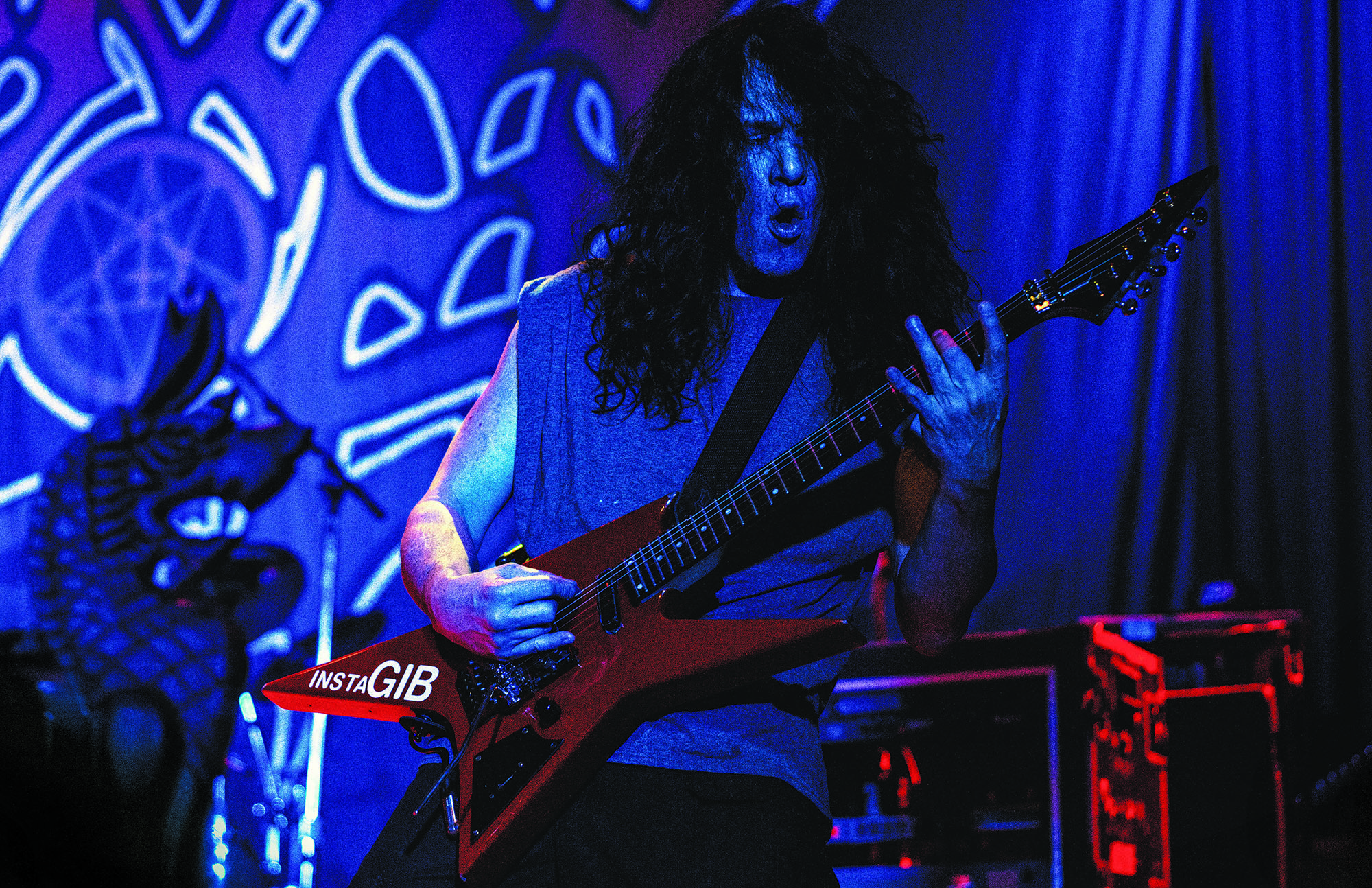
Would you rather die in bed or in a nuclear holocaust?” asks Morbid Angel guitarist and primary songwriter Trey Azagthoth in the middle of an interview about the band’s new album, Kingdoms Disdained. It’s just one of many odd and abrupt comments or utterances he makes during the conversation.
“I’d rather be like those people in the movie Deep Impact that stand on a beach waiting to be blown away by the tidal forces,” he continues. “Not one of the snivelers who commits suicide or tries to hide from all the fantastic events and amazing things coming for everyone to experience. It’s a good death.”
The analogy is cryptic, for sure. It also makes a certain amount of sense—especially for Azagthoth, whose enigmatic explanations sometimes defy logic. Not this one. Kingdoms Disdained is a furious, apocalyptic, go-for-broke record on which Morbid Angel’s co-founder prioritized speed and skewed technical rhythms over electronics or atmospherics. It’s the kind of all-in release that conjures images of Tibetan monks igniting their fuel-soaked robes or cult followers gulping the Kool-Aid in their final act of pure devotion.
Old-school Morbid Angel fans would accept no less than that kind of commitment after the mid-paced, industrial-tinged and largely disappointing 2011 album Illud Divinum Insanus. After all, this is one of the main bands that put Florida death metal on the map in the mid Eighties. For Kingdoms Disdained, Azagthoth relied on instinct, writing quickly and recording over several months, as opposed to the five years it took to create the band’s last album.
He said goodbye to longtime front-man David Vincent and reunited with ex-Morbid Angel vocalist and bassist Steve Tucker, who has been in out of the band twice and last played on 2003’s Heretic before Vincent’s return in 2004. The move caused a mini-kerfuffle, but Tucker accepted the invitation to return to the Morbid fold with enthusiasm, and he and Azagthoth have put any squabbles behind them in order to recapture the type of brutality they tapped into on 1998’s Formulas Fatal to the Flesh and 2000’s Gateway to Annihilation.
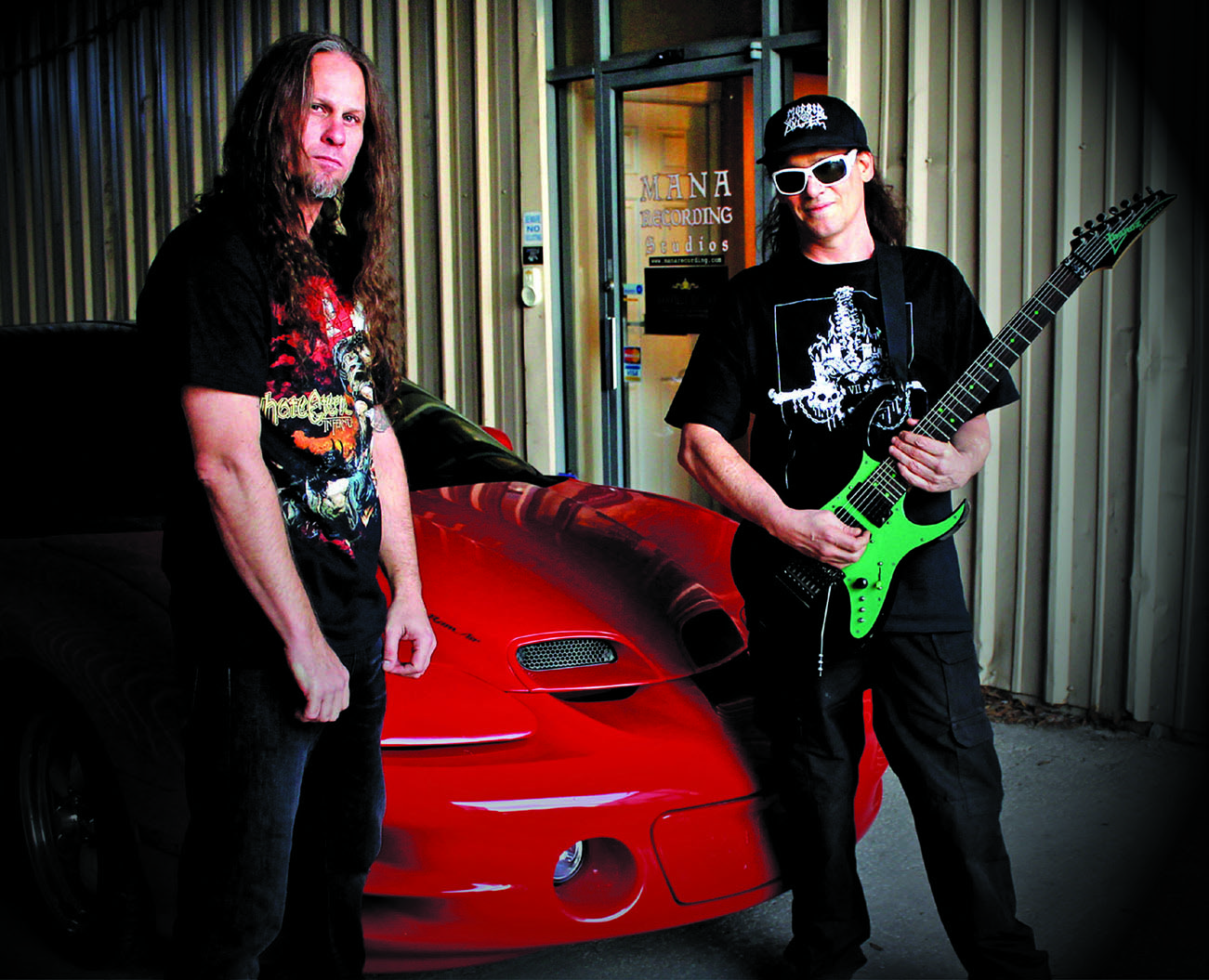
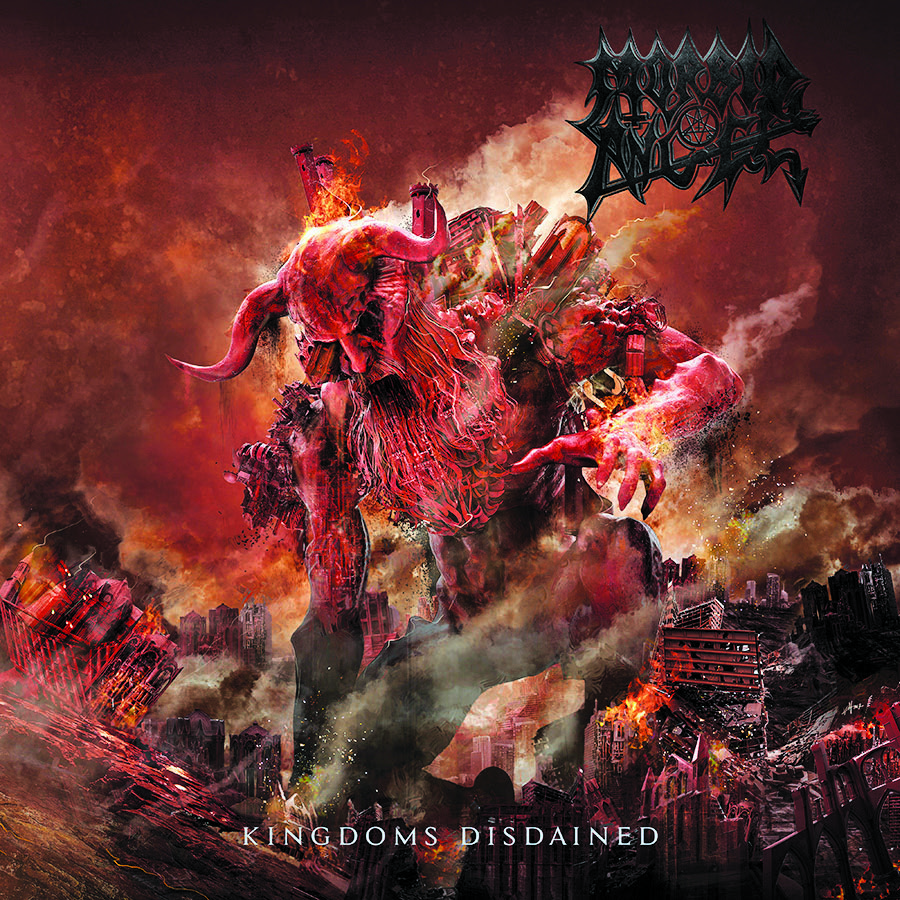
With the help of producer Erik Rutan (who played guitar in Morbid Angel for two three-year stints), Morbid Angel has created a modern-sounding, old-school album full of barreling double-bass drumming, machine-gun blast beats, skewed riffs and choppy guitar patterns. Throughout songs like “Garden of Disdain,” “Architect and Iconoclast” lie an abundance of hairpin turns, long, deep string bends and vertigo-inducing tempo shifts. From one song to the next, Azagthoth plays a torrent of mindblowing solos, ranging from the detuned noise wash of “Piles of Little Arms” to the frantic hammer-on, pull-offs and tapping of “The Righteous Voice.” Whether playing textural fills or blinding sweep-picked, flanger-saturated runs, Azagthoth is locked in the moment and going with the flow—mostly by necessity.
“Bro, I didn’t have much of a clue as to what to do for solos so I just got in there and jammed to it and recorded things,” he admits. “I was just exploring the place and tapping into the magic of the moment. Magic and philosophy is the code, just like the code for computer software. But humans are better than any computer, really. We can all create an embed into ourselves—the kind of code that we deem useful to achieve whatever results we want to achieve.”
Get The Pick Newsletter
All the latest guitar news, interviews, lessons, reviews, deals and more, direct to your inbox!
When asked to elaborate, Azagthoth blurts, “Humans are dynamic and we can program ourselves, by what we choose to influence and condition ourselves with. It is beautiful what humans can actually do. I look at things in my own freaky way and find musical influence in everything: My 1998 Trans Am WS6 Ram Air, my guns, my new BMX bike, Jim Beam, good green, strong coffee.”
Azagthoth pauses, as if he’s finished his thought, but he’s really only halfway done; when he’s on a roll he speaks as rapidly as he plays. “I’m also inspired by old children’s TV shows and video games: Thun-darr the Barbarian, Quake 3 Arena, Resident Evil, Dino Crisis and Twisted Metal 2. Also, Land of the Lost, Voyage to the Bottom of the Sea, Electro Woman and Dyna Girl and, for sure, Dungeons and Dragons, and I am a very caring dungeon master.”
Some have described Azogthoth as mentally unbalanced. At the very least, he’s inordinately eccentric. In the band’s nascent days, he and Vincent cut themselves as part of Satanic blood rituals before taking the stage. Since then, Azagthoth has sought inspiration through a combination of magic, creative visualization and the teachings of motivational speaker Tony Robbins and alternative medicine guru Deepak Chopra.
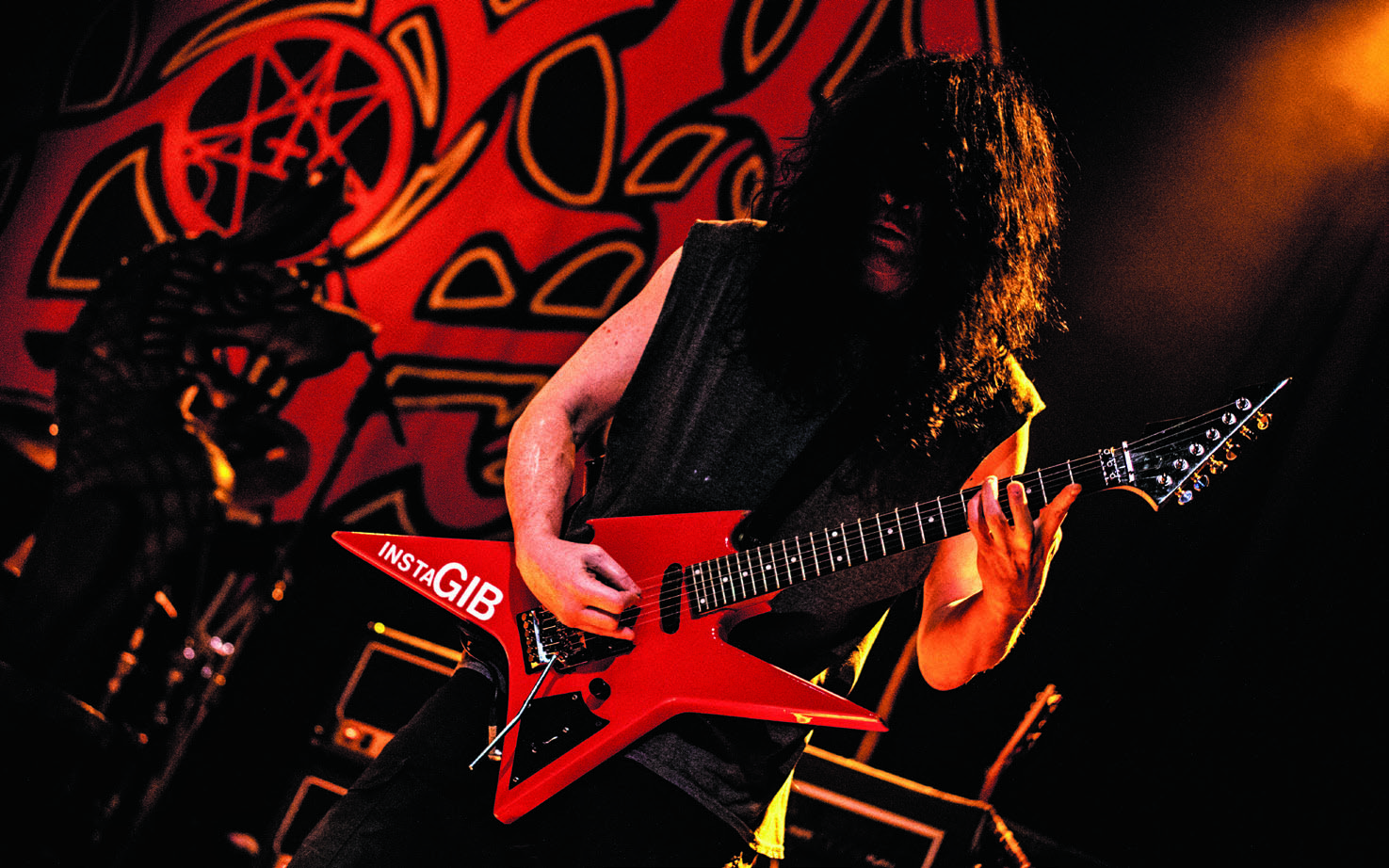
Yet, it’s too easy to dismiss Azagthoth as a demented guitar wizard whose extra-curricular pursuits imbue him with strength, but whose quirky ideas keep him a quantum leap from reality. Analysis of his conversation, however, reveals that the guitarist usually only descends into gibberish when he’s annoyed or if he wants to change a subject. When asked if he was unhappy with the largely negative reaction to Illud Divinum Insanus, which was the first collaboration with Vincent since 1995’s Domination, Azagthoth drifts away into asylumville.
“Momma’s little baby likes short’nen, short’nen/Momma’s little baby likes short’nen bread,” he sings, then spins off into an unnerving narrative: “Cori-Bell, those weeds are growing faster than you pulling them. Mary-Bell, your daddy watching the way you planting that and it don’t look straight. Lilly-Bell, that plow is not gonna plow without a little elbow grease.” Then Azagthoth returns to song, “Momma’s little baby likes short’nen short’nen/Momma’s little baby likes short’nen bread.”
Even if his unsettling asides aren’t a stunt and actually reveal some mental instability, they don’t detract from his stellar playing. Since 1989, when Morbid Angel emerged with the next-generation soul-shredder Altars of Madness, Azagthoth has been one of the most skilled rhythm and lead players in death metal. On Kingdoms Disdained, he rips through his staircase rhythms and seemingly backward chugs on his 1990s Ibanez Universe 7-String with a custom green pick guard.
For his leads, Azagthoth used six different guitars from various companies that he refuses to name. “I am not endorsed by anyone and I buy all my guitars used off eBay,” he says. He equipped the axes with Floyd Rose tremolos and employed a variety of pickup configurations, including a middle-position single-coil pickup. “I love how a single-coil pickup struggles since it’s so low-output, but it works so nice when the picking attack is hardcore.”
Azagthoth is less secretive about his other gear. For Kingdoms Disdained, he ran two mid-Nineties high-gain 100-watt Marshall heads with EL34s through classic 1960 4x12 cabinets and wired the signal through an Eventide H3000 for a stereo effect.
“I don’t like to stack my speakers ’cause I don’t want it at ear level,” he says. “For me, I like them down on the ground so the sound can just hit me in the waist.”
Live and in the studio, Azagthoth tunes a half-step down and uses heavy GHS strings on his six-and seven-string guitars (.009, .011, .016, .026, .036, .046 and, for the seven-string, .056). For effects, he favors a Line 6 wireless that plugs into an MXR Flanger, which he primarily sets for a “slow jet sweep sound” for rhythms. From there, he plugs into an MXR Phase 90 set at a mid-speed. “The rate makes it wobble like complete acid, and I love it,” he enthuses.
Then, he plugs into a Morley Wah before returning the signal chain to his rack and a Tom Scholz Rockman Midi Octopus. “It’s hard to find, but every now and then you see one on eBay,” he says. “I use that with my Univibe to put the Univibe in and out of effects chain via midi.” Finally, Azagthoth plugs into a ProCo R2DU Rat rackmount distortion and an MXR Kerry King EQ box, which he favors since it has two outs and he runs two amps and a stereo sound (achieved from the way he sets his H3000 into the FX loops in the amps).
Morbid Angel spent three weeks in preproduction rehearsing for Kingdoms Disdained at Rutan’s Mana Recording Studios in St. Petersburg, Florida. Then, they took almost a month recording the album, which Rutan and Azagthoth co-produced.
Azagthoth is the only Morbid Angel member who played on the band’s last album. New rhythm guitarist Dan Vadim Von (ex-Wretch) replaced Thor “Destructhor” Anders Myhren, who lives in Norway and found it too difficult to coordinate his schedule. And Scott Fuller (Annihilated, Error-geist) took the Morbid drum seat from Tim Yeung, who wanted to continue playing with Vincent. Azagthoth meshed especially well with Fuller, who was able to keep up with the speedfreak tempos and barreling groove and incorporate a variety of syncopated beats and acrobatic fills.
“I mapped out the beats for Scott and I think this record has the best polyrhythms I ever did,” Azagthoth says. They’re kind of at a new level. I added in a lot of nice swing. And having Scott playing to the songs was epic and wonderful—like beautiful acid.”
As thrilled as Azagthoth is with the savage return to form Morbid Angel displays on Kingdoms Disdained, he offers no apologies for the computerized beats and effects of Illud Divinum Insanus. “It just shows how David and I are in different worlds these days,” he says. “He is, for sure, an artist and great in his own way, but was becoming so very different than what I was into. It was a confused effort and that is why I changed the lineup.”
“I already knew the result was gonna be off during rehearsals and recording,” he adds, revealing more about what went awry. “Some of it turned out cool, but David made his vocals too loud—like usual—and the rhythm guitars got subdued in the mix. Then David flew to L.A. to finish some vocals with the engineer that mixed the record. And it seems he influenced how the mix was gonna turn out. Before I heard the final mixes for the record I thought it was gonna sound a lot more heavy. But nothing could save a silly song like ‘Radikult,’ which I just tried to ignore. I had nothing to do with that thing.”
When asked why he consented to the release of Illud Divinum Insanus, Azagthoth pauses before answering, as if choosing his words carefully. He implies that he felt it might be interesting to present a different side of the band. Then he offers a garbled bit of verbiage that explains little else.
“The third principle of the Triumvirate says, ‘I create myself and my world. I am the one who creates the happenings in my life,’ ” Azagthoth explains. “It is a useful principle of guideline and, as Tony Robbins says, ‘It is not important that a belief be 100 percent accurate, but it is most important that a belief be useful. It is a part of the real freedoms we all have as a natural asset.’ ”
As Morbid Angel prepare to tour to support Kingdoms Disdained, Vincent and ex-Morbid drummer Tim Yeung will continue to play shows with his new band I Am Morbid, which performs strictly Vincent-era Morbid songs. Conversely, Morbid Angel will only play songs that never featured Vincent.
“With that other lineup, we played the same set for so many years and added a couple songs here and there,” Azagthoth explains. “We are not boycotting old songs, but when I got my new lineup I wanted to use these other songs, which are also really cool and we even added songs we never ever played live before. And also I wanted to show how this band did awesome things even without David Vincent.”
Having mentioned his old bandmate again, Azagthoth lapses back into mental ward mode. “Here we go with the ole chuck wagon…axle busted and back wheel drag-gin’,” he rhymes.
As for Vincent’s decision to tour Morbid songs with I Am Morbid, Azagthoth is more lucid and only mildly annoyed. “Sometimes ya just gotta laugh,” he says. “I’m moving on, and hey, I wish David all the best with whatever he’s doing. Me and David made great things in the past for many years and then we grew apart. But now I have people working with me that I can relate to better. Working with Steve is awesome and we go out there and do all that fucked up, sick-ass shit again.”
Jon is an author, journalist, and podcaster who recently wrote and hosted the first 12-episode season of the acclaimed Backstaged: The Devil in Metal, an exclusive from Diversion Podcasts/iHeart. He is also the primary author of the popular Louder Than Hell: The Definitive Oral History of Metal and the sole author of Raising Hell: Backstage Tales From the Lives of Metal Legends. In addition, he co-wrote I'm the Man: The Story of That Guy From Anthrax (with Scott Ian), Ministry: The Lost Gospels According to Al Jourgensen (with Al Jourgensen), and My Riot: Agnostic Front, Grit, Guts & Glory (with Roger Miret). Wiederhorn has worked on staff as an associate editor for Rolling Stone, Executive Editor of Guitar Magazine, and senior writer for MTV News. His work has also appeared in Spin, Entertainment Weekly, Yahoo.com, Revolver, Inked, Loudwire.com and other publications and websites.
“There’d been three-minute solos, which were just ridiculous – and knackering to play live!” Stoner-doom merchants Sergeant Thunderhoof may have toned down the self-indulgence, but their 10-minute epics still get medieval on your eardrums
“There’s a slight latency in there. You can’t be super-accurate”: Yngwie Malmsteen names the guitar picks that don’t work for shred




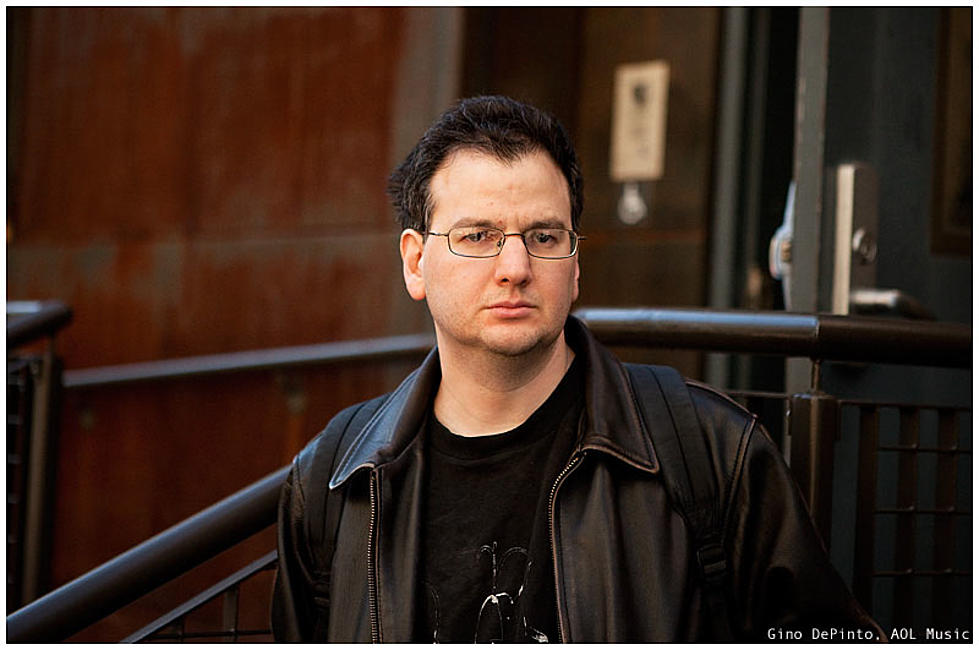

![A black-and-white action shot of Sergeant Thunderhoof perform live: [from left] Mark Sayer, Dan Flitcroft, Jim Camp and Josh Gallop](https://cdn.mos.cms.futurecdn.net/am3UhJbsxAE239XRRZ8zC8.jpg)







